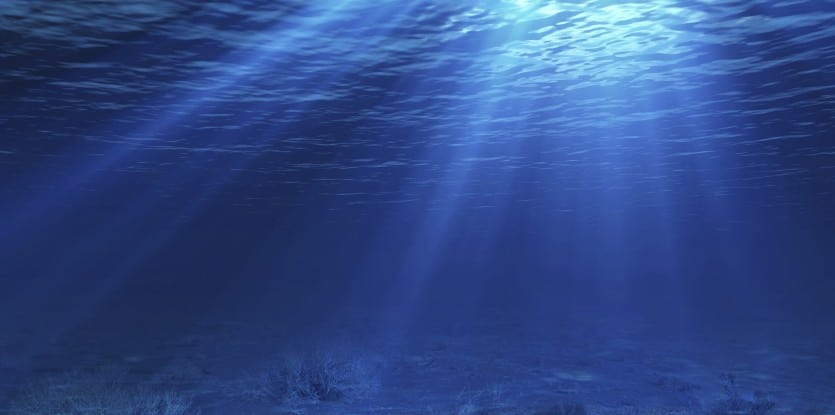Who is the individual identified by the following clues?
A man known by a name not given to him by his parents.
Indeed, till this very day this man’s birth name remains unclear.
Though he led a great nation, his people saw him as a stranger.
A man of no words, yet his words become immortalized and are remembered forever like no other mans’ words.
He spent his most formative years away from home – on the water, in a foreign palace and then in a distant land. But he came to build the most powerful home in existence.
History’s greatest leader and humblest man.
He is the most famous man in history, yet no one knows where he is buried till this very day.
Who is this mysterious man, riddled with contradictions?
None other than Moses.
The mystery of Moses lies in his name: Though he was named by his parents (1), he is known by his name Moses – Moshe – given to him by Pharaoh’s daughter. Moses’ mother, to save him from Pharaoh’s decree that all newborn Jewish males be drowned in the Nile, placed her three-month-old infant in a basket and concealed it in the rushes that grew along the Nile riverbank. Pharaoh’s daughter discovered the weeping child when she went to bathe in the river.
She therefore named the child Moshe (“the drawn one”), “because I have drawn him from the water” (Exodus 2:10).
Why would the great Moses be known by this strange name based on this seemingly incidental episode? The name Moses actually captures the essence of his personality: A man drawn from water.
Water is a mysterious world. Unlike land where the terrain and the creatures are visible, the contours of the sea and all its inhabitants remain submerged and concealed in an unknown universe. This distinction is not merely quantitative. The fish in the sea are dependent and connected to their very source of sustenance, while land mammals remain separate from their source; their psyches are disconnected from their life source.
The mystics explain that Moses was a “man of no words” because his soul originated from the “hidden worlds” of water, the intimate world of the unconscious, which is more profound and intense than any words of land can express. But for this exact reason Moses introduced unprecedented revelation to Earth. Precisely because Moses is a “water man” living on Earth, he is able to draw from the inner worlds and bridge and express the language of the Divine and communicate it to the land people.
The Zohar teaches that there are tzaddikim (righteous individuals) who live their entire lives as “fishes of the sea,” wholly submerged within a perpetual awareness of and subjugation to the divine reality. Moses was the epitome of these “aquatic souls.” “Moses was the most humble man on the face of the earth.” He was certainly aware of his own greatness; certainly he knew that he was the single human being chosen by G-d to serve as the conveyor of the Divine wisdom and will to the human race. Yet Moses did not view his qualities as his “own” attainments, for he had utterly nullified and submerged his self within the sea of the divine reality. His own life was merely the divine plan being realized through a transparent channel; his teachings – the “Divine presence speaking from his throat.”
And that is why Moses was actually hidden in the water, and is consistently identified with water.
Thus Moses was an embodiment of paradox and contradictions. Drawn from water, Moses bridged two opposite worlds – the unconscious and the conscious, the world of spirit and the world of matter, the Divine and the human.
Outside of this world, Moses was able to transform this world and build the Holy Temple, a material home for the Divine, where “I will rest amongst you.”
Though Moses is the most famous person in history, he always remains a mystery – seemingly more at home in his 40 days in the clouds of Sinai than in his days on Earth. Even after death – by the kiss of G-d – Moses’ burial place remains unknown: “Below it appeared as though he was above and above it appeared as though he was below.”
Therein lays the secret of the enigmatic Moses: Moses was a “man of G-d.” To be a man and to be Divine is the ultimate paradox.
So, the next time you encounter a paradox in your own life or in the world around you – remember that paradox maybe the most natural state of a universe not fully in touch with its own essence.
* * *
One of the most moving verses describing Moses’ early days is often overlooked.
Moses’ life begins with a very gentle moment: a little sister watching over her baby brother. As the three-month old Moses lay floating in a basket on the riverbank, his seven-year-old sister, Miriam “stood at a distance to see what would happen to him” (2:4).
We may never know the full impact that Miriam’s gentle watch had on Moses’ great life. We do know that because Miriam patiently waited and watched over Moses, she later merits that the entire nation “did not move” and waits for her to heal and return home before they travel on (Numbers 12:15. Mishne Soteh 9b).
Oh, how we are in need of such sisters today?
Every one of us, at one time or another, will be floating on a “river,” feeling abandoned and left alone in foreign waters.
Which child is not in need of someone watching and protecting the child? And even as adults – our “inner child” and even our “outer adult” – needs to know that we are being watched over and protected.
A little girl just about 3400 years ago teaches us about our responsibility to protect the children around us.
Rise women, sisters and daughters. Protect your children. Watch over your men.
A little care today, even for a mere hour, results in a lifetime of reward.
All great events are borne out of small, unnoticed acts. All great people rise out of humble, quiet moments.
Every great person has a “sister” who watched over him.
Who will you watch over?
——-
(1) There are several opinions in the Talmud and Midrash regarding Moses’ name: Tov or Tuviah (Soteh 12a). Moses’ had ten names: Yorad, Chaver, Yekusiel (see Pirkei d’Reb Eliezer ch. 48), Avigdor, Avi Suko, Avi Zonuach, Tuvia, Shemayah, Levi, Moshe (Vayikra Rabba 1:3. See Megilah 13a). The Seder Hadorot (entry on Moshe) cites that Moses’ father, Amrom, called his son Chaver. His grandfather, Kehot, called him Avigdor.
* * *








water reminds me of the true meaning of judaism-echad -one -to be one -to perform tikkun olam by not feeling the need to be above any living thing -this would eliminate poverty ,wars, prejudice and hate–water does this when it flows together it becomes one -no one drop is better than the other -can you imagine if we were like water.
Water makes me think of two things, cleansing and the ups and downs of life.
And as I was penning this down I see a connection.
The challenges – storms – in our lives can be cleansing, if we chose to see challenges as opportunities for growth rather than problems from which to hide. Its the tempests that bring me closer to God, those times that are clearly too big for me to handle cause me to reach out to Him. As He responds I learn to trust Him more.
MW
Water is a great recreation source.
In my childhood I liked , as an Aqua person, to immerse myself into the sea. I spent hours swimming, diving, and watching fish and other creatures in deeps. The silence of deep brought nice music of bells.
Water is a great source of joy: In a warm day, when you are thirsty and you are walking for several miles to get a cup of cold mineral water straight from the spring. Clear, silvery with bubbles, it fills your mouth and throat with a mixture of liquid, light, and breath. You can take a short shower of this ice cold mineral water, that makes you feel intoxicated better then alcohol.
Water is a remedy. Used properly, it can give a great relief from pain, inflammation, and many other diseases.Water is a good cleaner.
Finally it is the source of each life. Clear water is associated with purity and dirty wart er is associated with diseases. We also used to associate knowledge with water.
Water reminds me of light. Water and light fill the vessels they are put in. The impurities in it give it color, texture, taste, vibrance, life. As with light the impurities are just a means to change its function and expand its border. I just found your webpage here. Very neat writings. Thank you.
Beautiful article. One small error- Miriam was 5 years older than Moshe, not 7.
Torah is water – It comes down the same as it is at it’s source. May we continue to learn its secrets.
Water is the source of life. Water is a cleanser of the body and important water is like a mirror, when the flow is settled. Jacob dream cam by the water by Jacob was having the conscious crisis about his past; Jacob image was reflecting in this cleansing water, while on the ladder the divine energy was flowing own and going back to Hashem after the cleansing.
Drink at least two glasses of water to keep your body(temple of your soul) clean.
From Rabbi Wyckoff comment : “when it flows together it becomes one -no one drop is better than the other -can you imagine if we were like water”. Then we would have reached the understanding that unconditional and indifferentiated Love is the route to happiness and peace. The Messianic era will reigned. Amen!